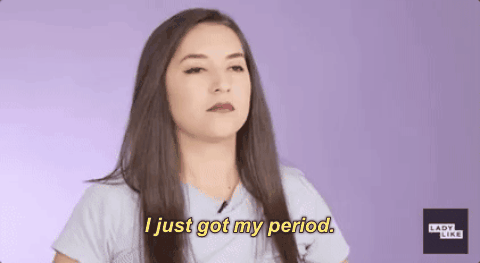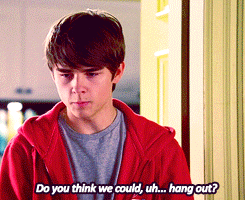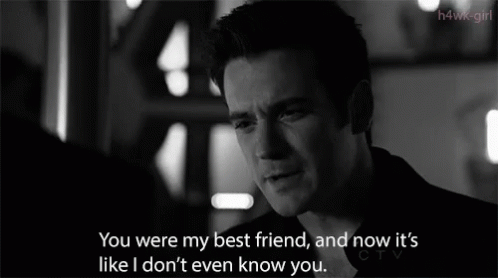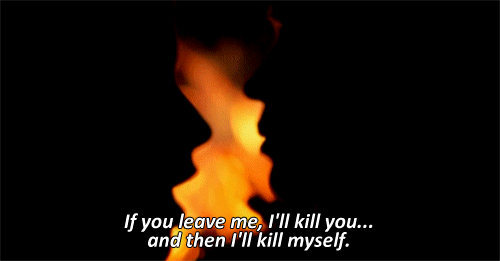Helping a friend in an abusive relationship is confusing and unnerving. But it's worth it.
I've experienced it with a friend and his journey will stick with me for the rest of my life. Relationships, healthy ones, are risky without the fear of abuse. Trust, feeling vulnerable, and opening up isn't simple, but everyone deserves to feel safe, comfortable, and bliss in their intimate connections. I've also personally experienced two varying types of emotional abuse, so I know what it feels like to feel stuck in a relationship even though it hurts, it causes more distress than ecstasy. I, thankfully, with the help of my friends and family was able to separate myself, but domestic violence continues to be prevalent and can easily be left unnoticed.
"57% of college students say it is difficult to identify dating abuse at all."
According to the National Domestic Violence Hotline, domestic abuse is defined by "behaviors that physically harm, arouse fear, prevent a partner from doing what they wish or force them to behave in ways they do not want."
Unfortunately, domestic abuse is often overlooked. But, it's universal. Often times, once abuse is discerned it's just the tip of the iceberg, while most threatening, damaging actions happen behind closed doors.
"Every 9 seconds in the US a woman is assaulted or beaten."
Relationship violence doesn't discriminate and can go on for a while without being noticed. Especially since most abusers aren't publically disrespectful. That's what's so alarming, you may never know what happens behind the scenes—or a #couplegoals picture—of a romance: things aren't always what they seem. It's not always physical damages, such as bruises, but all mistreatment within a relationship is scarring–whether that be physical, sexual, emotional, or verbal.
Abuse is abuse.
In high school, I had the ability to inform middle schoolers and my peers about domestic abuse and relevant topics surrounding love, relationships, hookups, assault, etc. And, this semester, I became officially certified by the One Love Foundation, which educates leaders about recognizing healthy versus unhealthy relationships in hopes of positively altering the intimate partner abuse statistics.
"On a typical day, there are more than 20,000 phone calls placed to domestic violence hotlines nationwide."
Constantly asking partner for permission

There is a difference between control and care. A "text me when you get home" message is sweet and all, but if a partner is controlling and consistently demanding "check-ins" and limiting one's freedom, this is a red flag of developing abusive characteristics. A healthy relationship, on the other hand, is two-sided, filled with mutual respect, open and honest communication, independence and freedom, support, and privacy.
Rushing into the relationship

No, not all relationships that instantaneously bloom and flourish end up being abusive. However, this is a common sign of potentially dangerous emotion that's typical in domestic violence.
"Sweet" manipulation

Most mistreaters will use sugar-coated exploitations to influence one's behaviors or instincts. Hence, manipulative operations are complex and challenging to pinpoint, but if someone is refusing to listen or only accepts their way, this is an indication that mind-games are employed.
Statements such as, "But I love you," "Because I love you," "I would do this for you," are utilized in manners intended to secure authority over a situation. Even insincere gifts and apologies are gestures that divulge this sweet manipulation.
Excuses for abuser

Never excuse someone's harmful actions becuase of anger, drugs, alcohol, even premenstrual syndrome (PMS). Abuse is generated by the desire for power, not external influencers or blame based on past experiences: mental health, destructive childhood, negative past romances, etc.
Bailing on friends, school duties, family time, activities, hobbies, etc.
 Similar to peer pressure, if a partner is coercing one to spend less time with friends, family, work, or other enjoyable activities, this isolation is a huge warning sign of obvious sabotage. Your lover should motivate you to be a better friend, harder worker, stronger individual, not pressure you into choosing between them and other aspects of your life or getting in the way of your success.
Similar to peer pressure, if a partner is coercing one to spend less time with friends, family, work, or other enjoyable activities, this isolation is a huge warning sign of obvious sabotage. Your lover should motivate you to be a better friend, harder worker, stronger individual, not pressure you into choosing between them and other aspects of your life or getting in the way of your success.
Possessive jealousy

Everyone feels envious now and then, but if these emotions begin to be the basis of control–curbing texts or time spent with others, unjust accusations, or even stalking–the relationship lacks trust, which is essential for a thriving partnership.
Control over dress and behavior

A common theme with domestic violence: control. You are the boss of your own body, including how you represent yourself, the clothes you wear, the hairdo you rock, and the voice you share with the world.
Avoiding certain situations

If you're walking on eggshells around your loved one becuase you fear his/her disparaging backlash, this is a forewarning that you're not at ease in your destructive relationship.
Uncharacteristic behavior

Individuals adapt, change, and mature; yet, if someone's entire disposition has altered after an intimate relationship has commenced, this is a red flag of control found in unhealthy relationships.
Using forms of guilt to persuade

It's never the victim's fault. They are not responsible for the actions or passions of another human being. Guilt can be in forms of simple blame or extreme threats, like "I'll kill myself if you leave."
Fluctuating zealous emotions

People are emotional, moody, and simply human, that's favorable—nevertheless, if someone reveals intense, volatile, over-the-top reactions rather quickly this could be a suggestion of dangerous obsession. If it's common for uncomplicated quarrels to abruptly transform into aggressive arguments, something isn't kosher. Drama is never positive or helpful in any type of bond, especially when unpredictable.
Iffy vibes

If you, your friends, family, peers are sensing a sketchy mojo from a person, take this into consideration. Not all reputations are true, but unsettling energy can reveal plenty.
The National Domestic Violence Hotline 1-800-799-SAFE (7233)
Pledge to #LoveBetter today!
Take a second to watch these #ThatsNotLove videos that further divulge what an unhealthy relationship looks like.




















